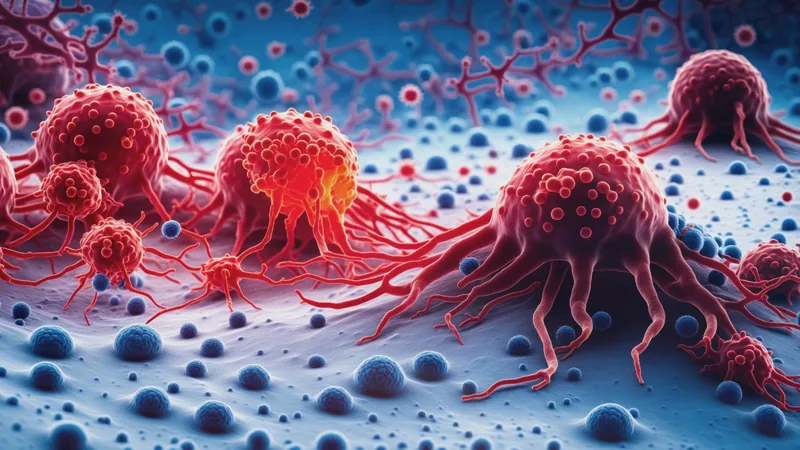
Unlocking the Secret: How Elephants Might Hold the Key to Cancer Resistance
2025-06-15
Author: Sarah
The Mystery of Peto's Paradox
For years, scientists have been baffled by Peto's Paradox—a phenomenon where larger animals, despite having more cells, are not necessarily more prone to cancer than their smaller counterparts. It seems counterintuitive: shouldn’t elephants, whales, and other massive creatures be at greater risk? Surprisingly, the data suggests otherwise.
The Elephant Gene: A Cancer-Fighting Powerhouse
A groundbreaking 2015 study unveiled the astonishing reason behind this anomaly: elephants carry an impressive 19 extra copies of the TP53 gene, a crucial player in preventing cancer. This powerful gene acts as a surveillance system, identifying DNA damage and triggering the death of potentially cancerous cells. This genetic advantage likely explains why elephants experience far lower cancer rates despite their size.
Beyond Elephants: A Wider Ecosystem of Cancer Resistance
New research has expanded the investigation to nearly 300 animal species, analyzing over 16,000 necropsy records. It turns out elephants aren’t the only ones equipped with cancer-fighting capabilities. Other animals, including certain birds, bats, and lizards, also show impressively low cancer rates, while species like ferrets and opossums are less fortunate.
The Complex Relationship Between Size and Cancer Risk
Interestingly, while larger animals do exhibit a slightly increased risk of developing cancer, it isn’t as drastic as one might assume. The study found that longer gestation periods may actually lower cancer risk, perhaps due to the development of robust cellular protections during the extended growth phases of their young. Furthermore, the research revealed that animals in captivity don't necessarily face higher cancer rates from living longer than they would in the wild.
Implications for Human Cancer Research
So, where does this leave humanity in the fight against cancer? The TP53 gene is already a cornerstone in human cancer prevention strategies, but with only two copies in our DNA, there’s tremendous potential to glean insights from animals like elephants. Understanding how these creatures fortify their cancer defenses might pave the way for innovative treatments designed to enhance human cellular resilience.
A New Frontier: Comparative Oncology
The field of comparative oncology, which explores cancer across different species, is just beginning to scratch the surface of these findings. The journey ahead will involve delving deeper into how various animals combat cancer and translating those discoveries into groundbreaking medical advancements for humans. The hope is that by mimicking the protective mechanisms found in the animal kingdom, we can develop therapies that significantly reduce cancer rates and slow its progression.



 Brasil (PT)
Brasil (PT)
 Canada (EN)
Canada (EN)
 Chile (ES)
Chile (ES)
 Česko (CS)
Česko (CS)
 대한민국 (KO)
대한민국 (KO)
 España (ES)
España (ES)
 France (FR)
France (FR)
 Hong Kong (EN)
Hong Kong (EN)
 Italia (IT)
Italia (IT)
 日本 (JA)
日本 (JA)
 Magyarország (HU)
Magyarország (HU)
 Norge (NO)
Norge (NO)
 Polska (PL)
Polska (PL)
 Schweiz (DE)
Schweiz (DE)
 Singapore (EN)
Singapore (EN)
 Sverige (SV)
Sverige (SV)
 Suomi (FI)
Suomi (FI)
 Türkiye (TR)
Türkiye (TR)
 الإمارات العربية المتحدة (AR)
الإمارات العربية المتحدة (AR)